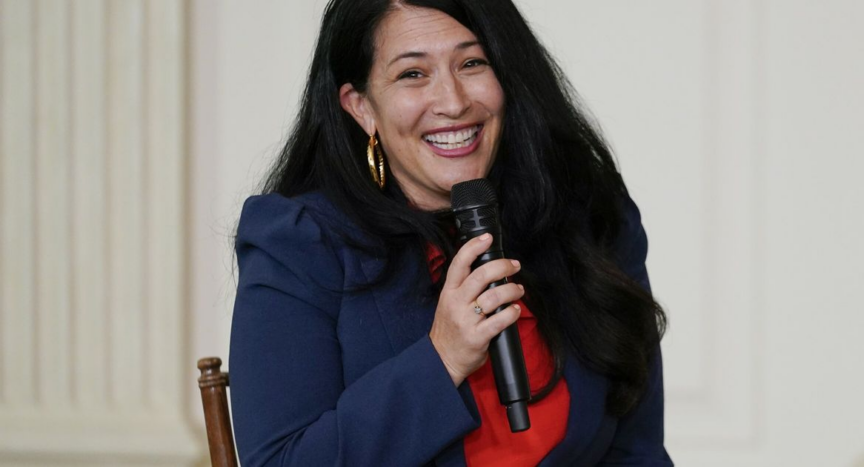Every spring, The Seattle Public Library organizes Seattle Reads, a citywide book club involving over a month of programming with discussions and events. This year’s pick, “You Are Here: Poetry in the Natural World,” features 50 poems by 50 poets from across the country. Edited by U.S. Poet Laureate Ada Limón, the anthology invites readers to investigate their relationship to nature, landscapes and poetry itself.
If poetry units in classrooms made the art form feel inaccessible, this book aims to flip the script. In inviting a diverse range of poets to contribute their poetry on nature, Limón’s anthology pushes back against a traditional image of nature poetry as something focused on a wilderness separate from the human world. Here, poets from a range of backgrounds write about the various ways nature shows up in life, from the landscapes of national parks to trees growing by a bus stop. The combination of their work sheds light on today’s transformations in nature, literature and the places where they intersect.
Stesha Brandon, the Literature & Humanities Program Manager at SPL, hopes the book will inspire conversations in communities across the city. “In this year’s selection, there are poems about grief and the climate crisis. Some of them are about feeling connected to something bigger than ourselves. Some of them are about community,” she said. “It offers different entry points to the conversation.”
Washington-based Indigenous poets Cedar Sigo and Laura Da’ both contributed to the anthology and will participate in Seattle Reads’ programming. Da’ said something that felt distinct to her about this particular anthology of nature poetry was that it questioned the idea of what it means to be an eco poet.
“I’m often considered an eco poet, but I’ve never felt that I go into a binary landscape,” she said. Da’ doesn’t view her writing as an explicit act of eco-poetry; the natural world is a part of her day-to-day. “I feel like all of my writing finds its source from all of the lands and waters that I’m on all the time.”
She is looking forward to examining questions surrounding landscapes with people across Seattle. “I’m excited about: how might this encourage people to read more poetry — and as people read poetry, how might it encourage an openness to (the) ambiguity of thinking about place? Maybe even engaging with the place and the water that you’re on through writing.” As someone with a background in K-12 education, she said she always feels energized by how events like Seattle Reads can spark literacy and connectedness.
She’s also excited to read with her friend, Sigo, who described his writing style as restless and rhythmic, trending toward a collage of language. “Often when you say you’re a poet, people want to lock you in the past,” he said, “and when you say you’re Native, they want to lock you in the past again over something else.”
When Limón reached out to him about the anthology, he was excited to be a part of a collective of poets that weren’t confined to a particular silo. “I’ve seen all these different anthologies — like, I was in one that was called Queer Nature — or an anthology of Black poets dealing with nature. And I feel like Ada’s book took all of those intentions and tried to make it one. We’re not separating,” he said. “We’re sort of making a utopia of all these different types of writers that maybe you never thought about as writing about nature, but here they are.”
Through his participation in Seattle Reads, Sigo hopes to invite people into poetry as an act that can provide a place of refuge and expression. “I try to introduce poetry in all of its humor and its lights. People tend to think of it as a very heavy gesture,” he said, nodding to a commonly held memory of school assignments asking for poetic analysis. “The way that we enjoy (poetry) is not by understanding it. It’s by letting it surround us and actually contemplating what that experience was like, then touching on its relevance later on.”
“You Are Here: Poetry in the Natural World,” will be available to check out through the library in digital and print forms. Starting in May, the library will have unlimited copies of the audiobook version available to library card holders. SPL will also purchase a number of copies of the book for informal borrowing so that anyone without a library card can still join the community in reading the book.
For those looking for more structured opportunities to engage, SPL and its partners will be offering a series of readings, writing workshops, discussions and other events that kick off on March 26 and run through the end of May.
In addition to those events, Limón will speak as part of the program on May 16 and 17. The full list of programs and discussion guides are available on SPL’s Seattle Reads website.

